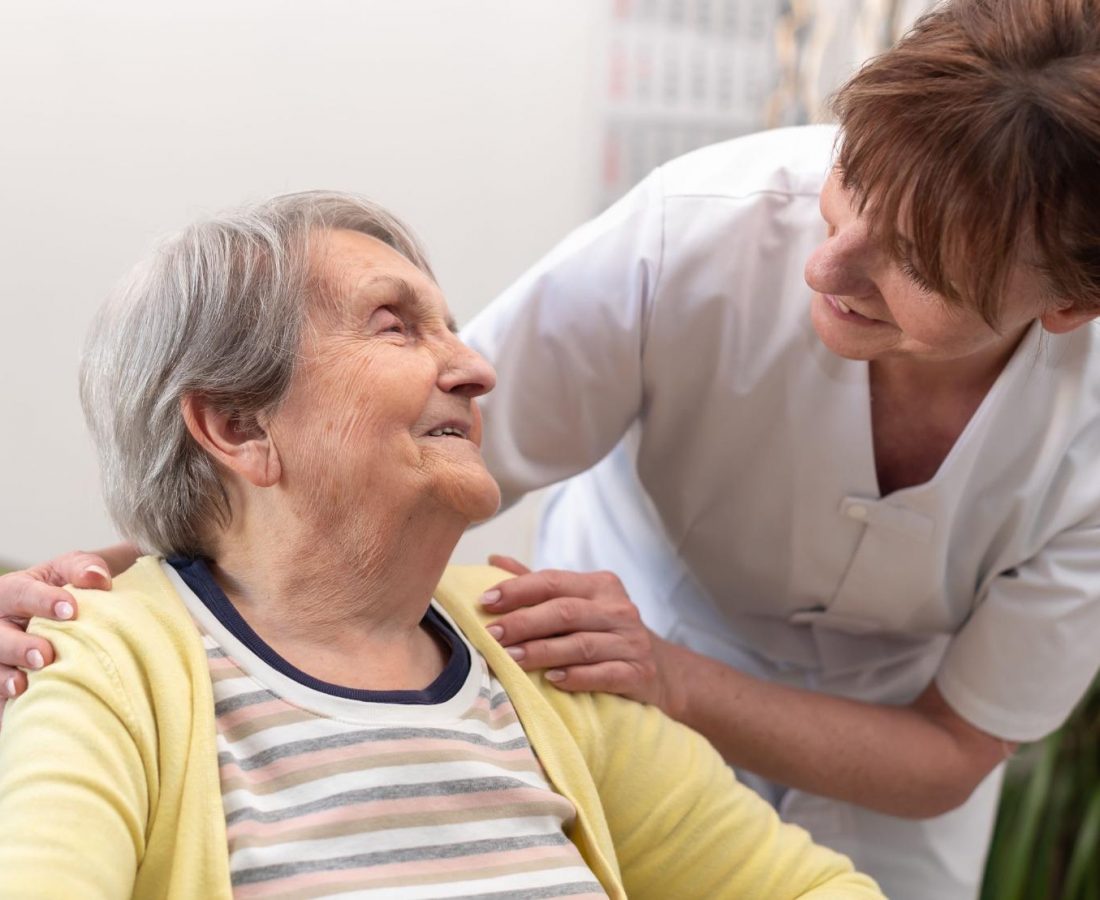Information I need:
Resources you can access:
Living with cancer
For comprehensive information about kidney cancer, diagnosis and treatments
About the kidney
For information about the kidney and what it does
Non-English resources
For resources in languages other than English
If you would like an interpreter to help you understand any information, please call
TIS National on 131 450 and ask them to call Cancer Australia on 02 9357 9400.
Business hours are 9am to 5pm, Monday to Friday.
Cancer misconceptions
For answers to cancer misconceptions
Information for Carers and Family
A cancer diagnosis and treatment may be a confusing time for family and carers who could be struggling with feelings of fear, anxiety, anger, depression and loss. They may also be overwhelmed by changes to relationships and lifestyle, and by their new role and responsibilities.

Resources you can access:
Caring for someone with cancer
What does it mean to be a carer?
There are networks and resources available for people caring for someone with kidney
disease such as Carers Australia and Carer Gateway.
Coordinating practical help and care
When friends and family say “let me know what I can do” the Gather My Crew app can help
organise the help and care you need. Download the app or read helpful tips and real stories.
Home help and assistance
You may be eligible for home help and assistance.
You can find specialist palliative care services in your local area on the Palliative Care
Australia website.
Financial assistance
Financial help may be available to you if you provide daily care.
Cancer Council Victoria
Rare Cancer Australia
Living with Cancer
Living with cancer can be really tough, but with the right support, information, and self-care, you might find it a bit easier to manage this journey. It might help to lean on loved ones and seek support from medical professionals and support communities. These communities can provide a safe space for sharing concerns, asking questions and gaining insights from people who are in a similar situation. Eating well, regular exercise and managing stress may also help improve overall health.
It is important to speak with a healthcare professional before changing your diet or starting any new exercise plan.

Resources you can access:
Eating well
A healthy, balanced diet is important when you have cancer.6
Search the Dieticians Association of Australia website for dieticians in
your area who specialise in oncology.
What are the best foods to eat for your kidney? Refer to the Kidney
Health Australia guide to eating with healthy recipes provided.
Exercise
Regular exercise helps to improve general health and well-being and
may also be an effective way to help with the physical, mental and
emotional effects of cancer.7
Mental health support
Up to 40% of cancer patients may experience clinically significant mental
health issues, including depression and anxiety.8
The Australian Psychological Society website allows you to search for
psychologists in the area who specialise in cancer support.
Taking care of your mental health is crucial. If you’re experiencing
anxiety, depression, or other mental health challenges, Beyond Blue
offers valuable resources and support. Visit Beyond Blue for information,
online forums, and professional help. Remember, reaching out is a sign
of strength.
Call a counsellor on 1300 22 4636
Cancer and work
Many patients and carers continue to work during the cancer treatment
and recovery period.9 Cancer Council provides support and resources
helping to make attending work or returning to work easier for patients,
carers and survivors, their employers and colleagues.
Legal, workplace and financial planning referral services
A cancer diagnosis may mean a loss of income and out-of-pocket
treatment costs.10 Cancer Council connects people affected by cancer
with a volunteer professional in the community who will provide advice
and assistance.
Survivorship
The Australian Cancer Survivorship Centre has developed information
resources and events to help people move from initial treatment to
post treatment and beyond, including those receiving maintenance
treatments.
Connecting with your GP
Under Medicare, all cancer patients are eligible for subsidised allied
healthcare.11
Chronic Disease Management Plans (CDMP) – which include General
Practitioner Management Plans (GPMPs) and Team Care Arrangements
(TCAs) – can help you access valuable services required for ongoing
maintenance of cancer-related health issues.
SPEAK TO YOUR HEALTHCARE TEAM ABOUT A FORMAL CARE
PLAN
Peer support
Building a connection with someone who has firsthand experience with
kidney disease, either personally or as a caregiver, can offer a sense
of hope, alleviate feelings of isolation, and uncover valuable tips and
strategies for managing life with the condition.
Kidney Health Australia have a few options to connect you to others
experiencing similar challenges such as the “Kidney Buddy Program
(Kidney Buddies)”, kidney clubs and support groups and online support
groups.
Kidney Helpline
A free phone support service available Australia-wide. The helpline
offers information, support, referrals, and advice to patients, carers and
healthcare professionals.
Call on 1800 454 363 (Mon to Fri 9am–5pm)
Cancer Council patient support services
Cancer Council support line: 13 11 20 (Mon to Fri 9am–5pm)
Cancer Council translator service: 13 14 50 (Mon to Fri 9am–5pm)
LOVE YOUR KIDNEYS
"Love Your Kidneys” is a patient-focused video series created in response to the emotional and informational needs of those living with renal cell carcinoma. Featuring insights from Dr. Jeffrey Goh on RCC and kidney health, and personal stories from Nick (advanced RCC), Juliet (clinical trial in non-clear cell RCC), Les (localized RCC and nephrectomy), and Belinda (carer to her teenage daughter), the series offers education, connection, and support to help patients and carers feel understood and empowered in their journey.
We hope you find this website helpful. For advice on medicines or any health-related matters, please contact your Doctor or Health Care Professional.
For medical emergencies please dial 000 immediately.
You should report side effects to the Therapeutic Goods Administration (TGA) online at www.tga.gov.au/safety/reporting-problems.
References: 1. National Cancer Institute. Renal cell cancer. Available at: https://www.cancer.gov/publications/dictionaries/cancerterms/def/renal-cell-cancer. [Accessed May 2025]. 2. Shuch B, Amin A, Armstrong AJ, Eble JN, Ficarra V, Lopez-Beltran A, Martignoni G, Rini BI, Kutikov A. Understanding pathologic variants of renal cell carcinoma: distilling therapeutic opportunities from biologic complexity. Eur Urol. 2015 Jan;67(1):85-97. 3. Kidney Health Australia. Available at:https://kidney.org.au/your-kidneys/what-is-kidney-disease/types-of-kidney-disease/kidney-cancer. [Accessed May 2025]. 4. Cancer Australia. Kidney Cancer. Available at: https://www.cenceraustralia.gov.au/cancer-types/kidney-cancer [Accessed May 2025]. 5. Cancer Australia. Kidney Cancer. Available at: https://www.cenceraustralia.gov.au/cancer-types/kidney-cancer/how-kidney-cancer-diagnosed [Accessed May 2025]. 6. Cancer Council. Food and Nutrition. Available online: https://www.cancer.org.au/cancer-information/causes-and-prevention/diet-and-exercise/food-and-nutrition [Accessed May 2025]. 7. Cancer Council. Move your body. Available online: https://www.cancer.org.au/cancer-information/causes-and-prevention/diet-and-exercise/move-your-body [Accessed May 2025]. 8. Cancer Council Victoria. Mental health: the forgotten impact of cancer. May 2020. Available online: https://www.cancervic.org.au/about/stories/mental-health-cancer.html [Accessed May 2025]. 9. Cancer Council. Cancer, work and you. Available online: https://www.cancer.org.au/support-and-services/cancer-work-and-you [Accessed May 2025]. 10. Cancer Council. Legal, Workplace and Financial Planning Referral Services. Available online: https://www.cancer.org.au/support-and-services/practical-and-financial-assistance/pro-bono-program [Accessed May 2025]. 11.Australian Government. Department of Human Services. Education guide - Chronic disease GP Management Plans and Team Care Arrangements. Available online: https://www.humanservices.gov.au/organisations/health-professionals/topics/education-guide-chronic-disease-gpmanagement-plans-and-teamcare-arrangements/33191 [Accessed May 2025].
This website is an information resource that is only for Australian residents. It is not intended to replace the advice of your healthcare professional. Speak to your healthcare professional if you have any questions about your condition or treatment.

